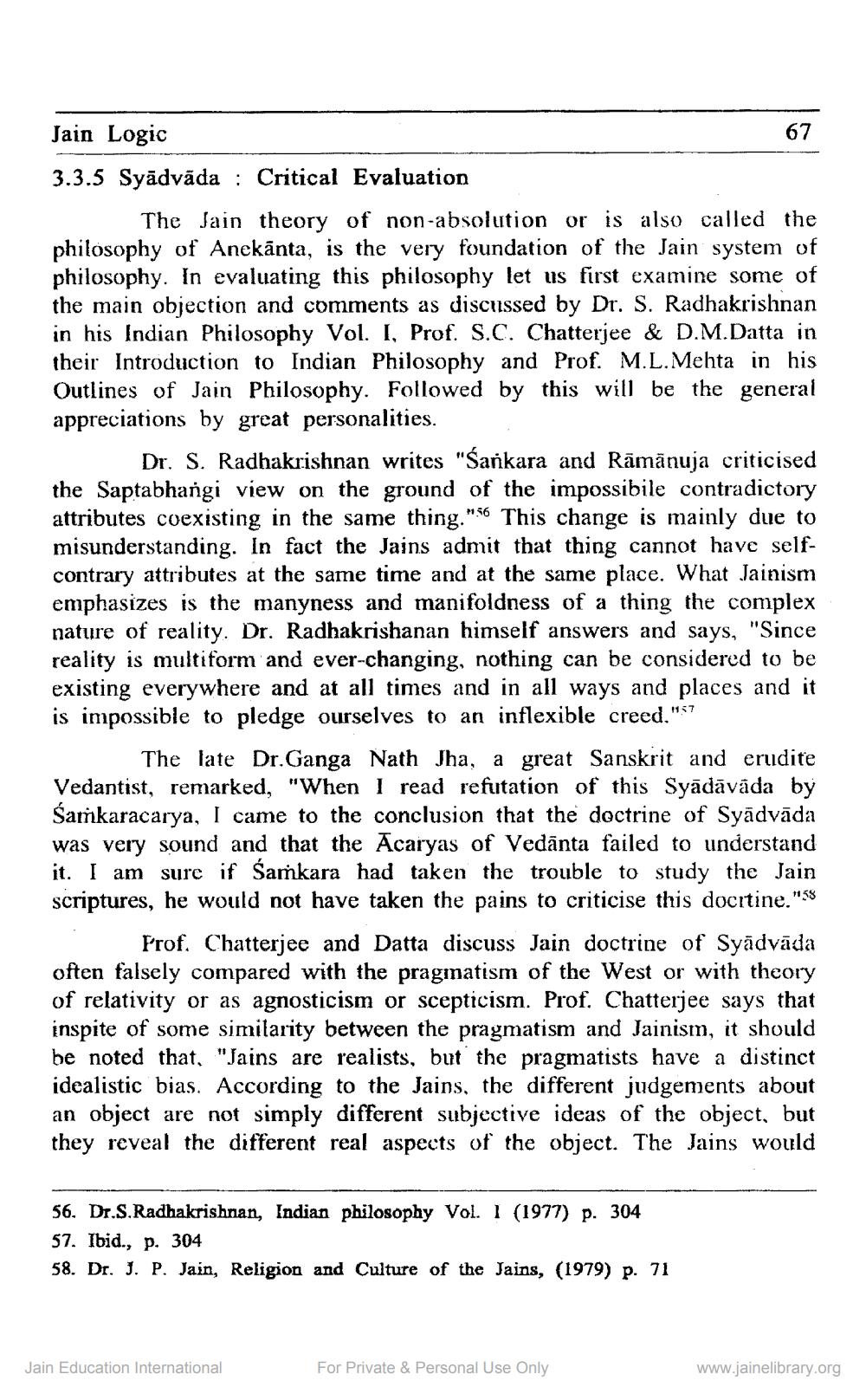________________
67
Jain Logic 3.3.5 Syādvāda : Critical Evaluation
The Jain theory of non-absolution or is also called the philosophy of Anekānta, is the very foundation of the Jain system of philosophy. In evaluating this philosophy let us first examine some of the main objection and comments as discussed by Dr. S. Radhakrishnan in his Indian Philosophy Vol. I, Prof. S.C. Chatterjee & D.M.Datta in their Introduction to Indian Philosophy and Prof. M.L. Mehta in his Outlines of Jain Philosophy. Followed by this will be the general appreciations by great personalities.
Dr. S. Radhakrishnan writes "Sankara and Rāmānuja criticised the Saptabhangi view on the ground of the impossibile contradictory attributes coexisting in the same thing."56 This change is mainly due to misunderstanding. In fact the Jains admit that thing cannot have selfcontrary attributes at the same time and at the same place. What Jainism emphasizes is the manyness and manifoldness of a thing the complex nature of reality. Dr. Radhakrishanan himself answers and says, "Since reality is multiform and ever-changing, nothing can be considered to be existing everywhere and at all times and in all ways and places and it is impossible to pledge ourselves to an inflexible creed."
The late Dr.Ganga Nath Jha, a great Sanskrit and erudite Vedantist, remarked, "When I read refutation of this Syādāvāda by Samkaracarya, I came to the conclusion that the doctrine of Syādvāda was very sound and that the Acaryas of Vedānta failed to understand it. I am sure if Saṁkara had taken the trouble to study the Jain scriptures, he would not have taken the pains to criticise this docrtine."58
Prof. Chatterjee and Datta discuss Jain doctrine of Syādvāda often falsely compared with the pragmatism of the West or with theory of relativity or as agnosticism or scepticism. Prof. Chatterjee says that inspite of some similarity between the pragmatism and Jainism, it should be noted that, "Jains are realists, but the pragmatists have a distinct idealistic bias. According to the Jains, the different judgements about an object are not simply different subjective ideas of the object, but they reveal the different real aspects of the object. The Jains would
56. Dr.S.Radhakrishnan, Indian philosophy Vol. 1 (1977) p. 304 57. Ibid., p. 304 58. Dr. J. P. Jain, Religion and Culture of the Jains, (1979) p. 71
Jain Education International
For Private & Personal Use Only
www.jainelibrary.org




